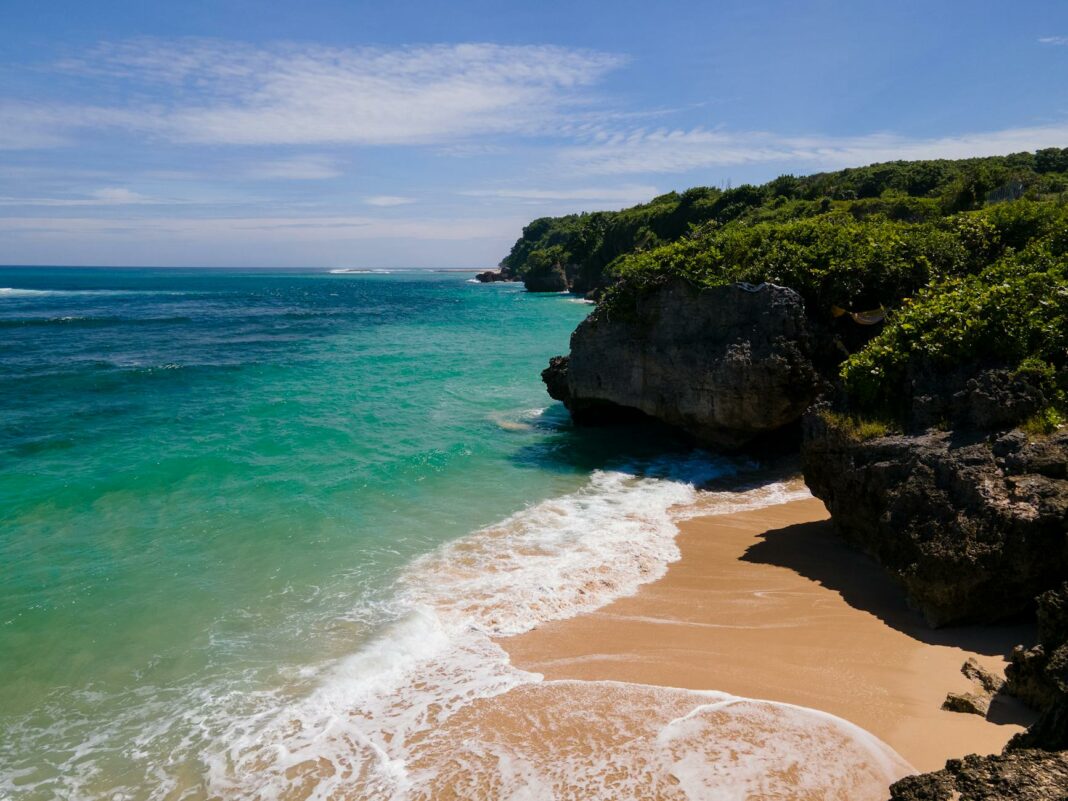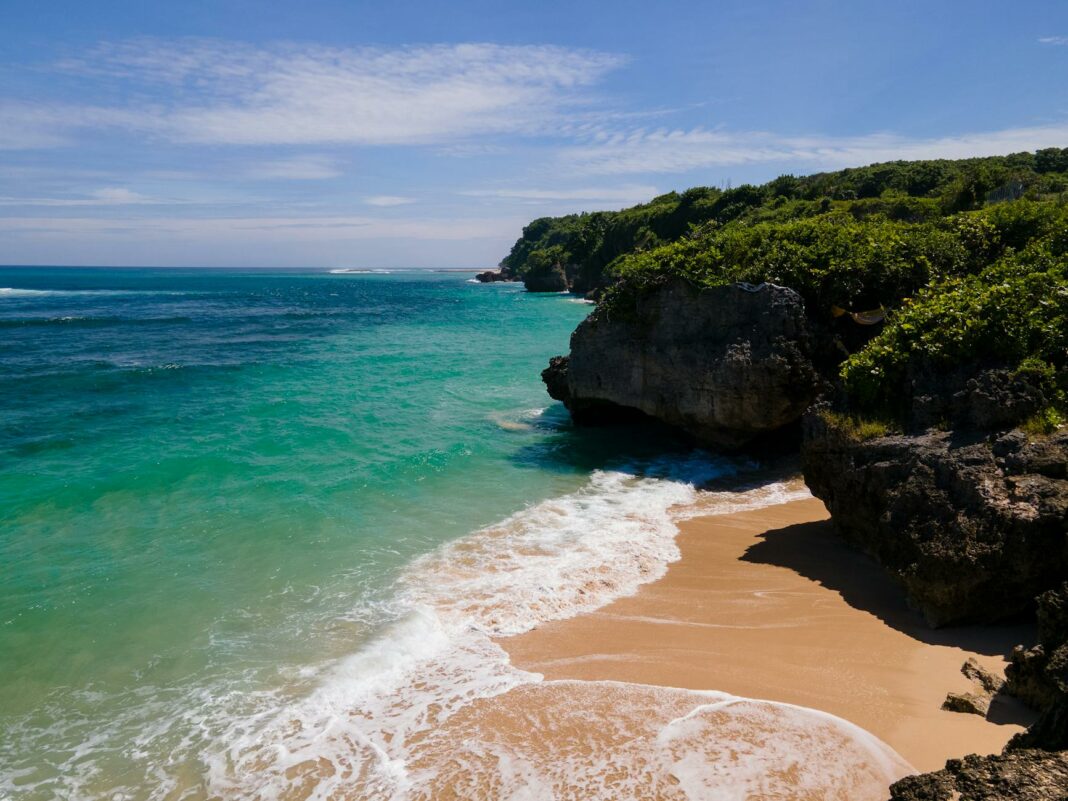Table of Contents
- Introduction
- The Significance of Coastal Ecosystems
- The Impact of Harmful Practices on Coastal Waters
- Consequences for Tourism and Economy
- Sustainable Alternatives for Coastal Management
- Making Informed Choices as Travelers
- Your Dream Vacation Is Within Reach
- FAQs
Introduction
Dreaming about your next getaway? There’s nothing quite like lounging by the ocean, feeling the sun’s warmth on your skin while listening to gentle waves crashing on the shore. However, behind this idyllic image sleeps a pressing issue that threatens the essence of your dream escape. Coastal waste management practices, while necessary, can sometimes lead to unintended consequences that affect not only marine life but also your vacation experience. Understanding how these practices work can empower travelers to make choices that align with their dreams and the environment.
Whether you’re hiking up a cliff or sipping a cocktail on the sand, your enjoyment hinges on the health of coastal ecosystems. A little insight goes a long way. By exploring both the practices at play and their repercussions, this post aims to shed light on how effective coastal management can lead to more fulfilling journeys. With a focus on positivity and sustainable solutions, your ideal coast-bound adventure can still be within reach despite the current challenges.
The Significance of Coastal Ecosystems
Coastal ecosystems are often considered the jewels of the Earth, offering stunning landscapes while fostering rich biodiversity. These vibrant ecosystems, composed of sandy shores, wetlands, and coral reefs, serve as essential habitats for numerous species, and they play a vital role in protecting shorelines from erosion. Imagine walking along a beach where the tides shape the land and support a variety of marine life, a scene made possible by the delicate balance these ecosystems maintain.
Furthermore, they act as nature’s filtration systems, cleansing water and providing crucial resources for both humans and wildlife alike. These areas are indispensable not only for their beauty but also for the livelihoods they support, from tourism to fishing industries. Unfortunately, this delicate balance can be disrupted by harmful waste management practices, leading many to question how we can preserve these coastal wonders for future generations. The overall health of our coastal environments directly influences your experience as a traveler, making it essential to recognize their importance.
The Impact of Harmful Practices on Coastal Waters
It may seem innocuous, but the repercussions of poor coastal waste management can ripple much farther than imagined. When improper disposal methods are employed—such as dumping plastics directly into oceans—the result is a catastrophic impact on marine ecosystems. Marine life becomes ensnared in waste, suffering from injuries or even death, which results not only in ecological damage but loss of beauty and diversity that can discourage eager beachgoers. The very essence of that serene vacation you’ve envisioned stands in jeopardy.
Moreover, the introduction of pollutants can lead to harmful algal blooms that taint water quality, impeding swimming and other recreational activities you may yearn for while on vacation. These blooms create dead zones devoid of life, further diminishing the appeal of coastal destinations. If these issues remain unchecked, they compromise the very foundation of coastal tourism, resulting in missed opportunities for relaxation and adventure. The need for sustainable practices becomes glaringly clear—not just as a necessity for marine life, but as an obligation to the joy of vacationers everywhere.
Consequences for Tourism and Economy
The prospects of your anticipated coastal getaway hinge on the health of local environments, yet negative practices can diminish the allure of these destinations. For tourists, nothing is more disheartening than arriving at a beach tarnished by pollution, affecting their decision to return. This disappointment can create a ripple effect throughout the economy, as lower visitor numbers lead to reduced revenues for local businesses that rely on tourists seeking sun-soaked adventures.
When coastal ecosystems suffer, the repercussions extend even further, impacting employment and resources within communities. Restaurants, hotels, and recreational services find themselves grappling with declining income. This economic vulnerability can push local governments to invest more in cleanup efforts rather than developing sustainable tourism initiatives. Thus, promoting healthy coastal ecosystems is an investment in the enduring vibrance of tourism and local economies. Protecting our coastlines ensures that every vacation creates lasting memories, not regrets.
Sustainable Alternatives for Coastal Management
Positivity fuels change, and there are numerous sustainable alternatives emerging within the realm of coastal management that can help restore and preserve these magnificent areas. Reimagining waste disposal routes to prioritize recycling and waste reduction can significantly lessen our footprint on coastal ecosystems. Various communities have begun implementing creative initiatives to engage locals and tourists alike, prompting them to participate in beach clean-ups and shoreline restoration projects. Such actions foster a sense of connection and ownership among visitors, enhancing the collective experience.
Additionally, local governments are investing in more advanced waste management technologies that can better protect these environments. From establishing better drainage systems to reducing plastic consumption through bans and incentives, there is a growing movement towards sustainable practices aimed at safeguarding our coastlines. These changes enhance the landscape of the beaches you enjoy while assuring travelers that their vacations support healthy and thriving ecosystems, leading to unforgettable experiences.
Making Informed Choices as Travelers
Empowerment comes from knowledge—an essential tool in making informed travel decisions. As you consider your next vacation, individuals can look for destinations that embrace sustainable practices and prioritize coastal health. Research local initiatives, eco-friendly accommodations, and carbon-conscious activities that support the environment while offering extraordinary adventures. A commitment to sustainability doesn’t mean compromising enjoyment; it means elevating it.
Your choices matter. Supporting businesses that advocate for the preservation of marine life can drive demand for healthier management practices in coastal regions. Opt for eco-friendly tours, partake in conservation activities, or simply be mindful of waste disposal during your stay. Every small action contributes to a larger movement that champions the wellbeing of our oceans, aligning your travels with personal values and ideals. In doing so, you pave the way for more picturesque and rejuvenating vacations in the future.
Your Dream Vacation Is Within Reach
At the end of the day, the prospect of your dream vacation should not just be a fantasy. Armed with the knowledge of coastal waste management practices, you can directly contribute to improving marine environments for countless travelers to come. By choosing to support positive initiatives, protecting coastal ecosystems can transform watery retreats into a sustainable reality rather than a mere wish.
The beauty of coastal areas holds endless possibilities waiting to be enjoyed, and actively participating in their preservation ensures that vacations remain delightful and freeing experiences. You have the power to redefine the narrative—creating a legacy of eco-conscious travel which in turn lets everyone relish the wonders of nature without compromise. Together, let’s celebrate coastal vacations that inspire awe, nurture memories, and support healthier ecosystems.
FAQs
What are some examples of harmful coastal waste management practices?
Examples include dumping plastics and untreated waste directly into waterways, which can lead to pollution that harms marine life and ruins beach aesthetics. Other practices may involve improper recycling methods, contributing to landfill overflow and environmental degradation.
How can I help support sustainable coastal management when traveling?
Choose eco-friendly accommodations, participate in local clean-ups, reduce single-use plastics, and support businesses that prioritize sustainable practices. All these actions encourage a culture of responsibility towards preserving beautiful coastal environments.
Image Credit: Pexels





